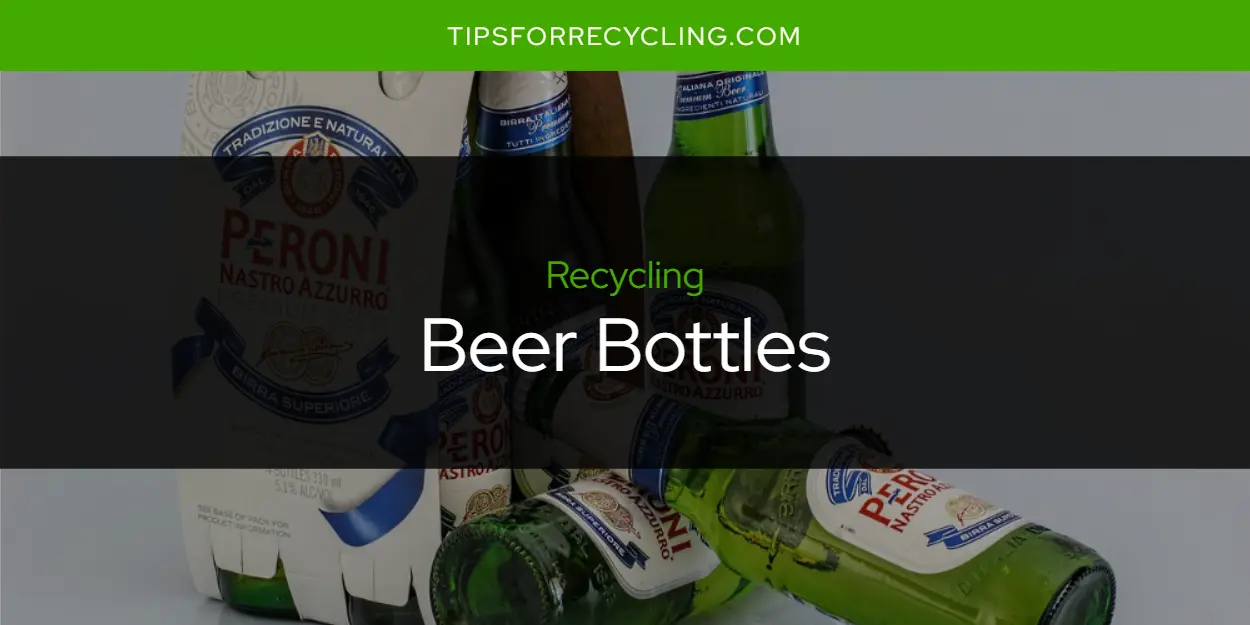Are Beer Bottles Recyclable?

Beer bottles have been a popular choice for beverage containers for centuries, and with the recent push toward more sustainable lifestyles and practices, it’s important to consider whether or not these bottles are actually recyclable. The answer is yes—both glass and plastic beer bottles can be recycled. Let’s take a closer look at what this means for you and your environment.
See the below map for locations where you can recycle beer bottles.
In some areas, it is possible to make money from recycling beer bottles by taking advantage of bottle deposit return laws. This means that when you return empty beer bottles to designated collection centers or stores, you can get cash back. Before counting on this as an easy way to make money, however, be sure to check out local regulations in your area as they may vary from location to location.
Similarly, see if you can recycle glass beer bottles.
The benefits of recycling beer bottles are numerous and should not be overlooked. By reducing waste in landfills, saving energy, conserving natural resources, and reducing carbon emissions due to the manufacturing process required for new products, we can all do our part to keep our planet healthy. Additionally, recycling glass or plastic helps reduce greenhouse gases by preventing them from entering the atmosphere when they break down in a landfill over time.
Similarly, see if you can recycle beer bottle caps.
To recycle beer bottles correctly, first rinse out the bottle and remove any labels or caps before placing them into your curbside bin or taking them to a recyclable center near you for collection and sorting. It is important to check with your local municipality about any specific rules regarding what types of materials can be included in your curbside collection bin as some may not accept glass containers such as beer bottles due to their weight and potential hazard when broken during collection and transport processes.
Similarly, see if you can recycle water bottles.
Broken or unusable beer bottles should be disposed of in accordance with your local regulations for hazardous waste disposal if they cannot be recycled at all (due to contamination). If there is no hazardous waste collection facility available in your area for disposal, contact a local garbage/recycling service provider for advice on how best to handle these materials responsibly without causing harm to the environment or public safety through improper disposal practices such as dumping them outdoors where wildlife could be affected by broken glass pieces left behind in soil/groundwater systems nearby .
Similarly, see if you can recycle beer boxes.
The main difference between recycling and reusing beer bottles is that when you recycle a bottle it will get broken down into smaller pieces that can then be melted down into new materials while reusing involves taking an existing object (bottle) and using it again without breaking it down into its component parts first before being reused again either as another beverage container or for other purposes such as art projects etc.. This type of reuse does not require any additional processing so it is much more efficient than traditional recycling methods which require energy intensive processes such as melting down plastics/glass for reuse within a manufacturing cycle somewhere else in order for them to become useful again .
Similarly, see if you can recycle baby bottles.
In addition to using proper disposal methods like returning empties back into the supply chain whenever possible, other ways people can promote sustainable living through proper use and care of their beer bottles include avoiding single-use containers whenever possible; purchasing reusable container options; participating in bottle exchange programs; supporting brands who use sustainably sourced materials; volunteering with clean-up initiatives; educating others about sustainable practices; purchasing items made from recycled material; organizing community events around sustainability topics like awareness campaigns etc... By doing our part now we can help ensure that future generations will have access to clean air, water, food sources - all while protecting wildlife habitats too!